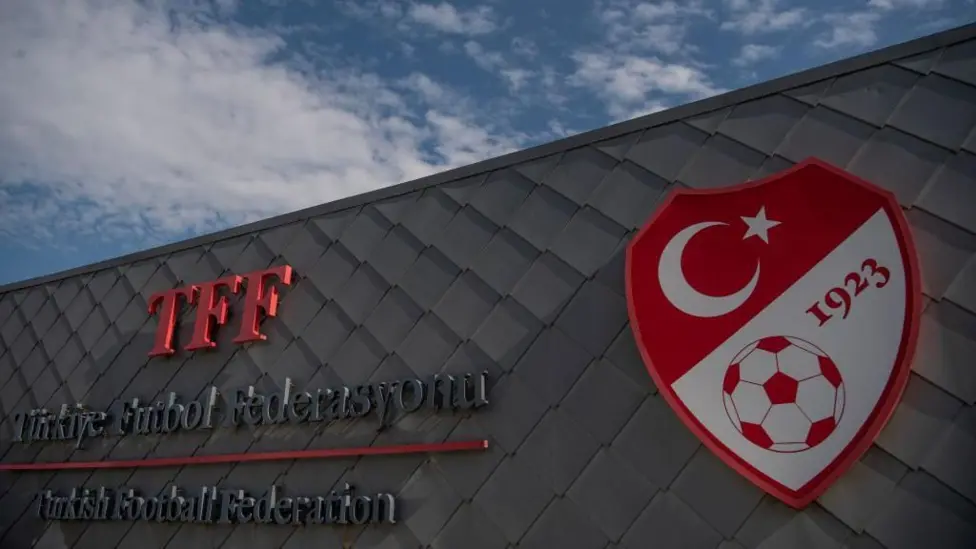A sweeping investigation into betting and match-fixing has rocked Turkish football, with prosecutors ordering the detention of 21 suspects, including 17 referees and two football club presidents.
The probe, led by the Istanbul Chief Public Prosecutor’s Office, represents one of the largest corruption scandals in the nation’s sporting history.
According to authorities, simultaneous raids were conducted across 12 cities including Istanbul as part of the ongoing operation. Eighteen suspects were taken into custody, while two are believed to be abroad and one remains unaccounted for. The identities of those detained have not yet been publicly disclosed.
Prosecutors said the referees are being investigated for “misconduct in office” and “manipulating the outcome of games,” with early findings suggesting deep-rooted connections between betting activities and match officiating across multiple tiers of Turkish football.
Among those named in the investigation are Eyüpspor president Murat Özkaya, and former Kasımpaşa Sports Club owners Turgay Ciner and Fatih Sarac, who are accused of exerting influence over match outcomes. The allegations are linked to a separate financial investigation launched in September into Can Holding and Ciner Group, both of which previously owned Kasımpaşa. Following that probe, a court appointed a trustee to manage the club, which remains under judicial oversight.
Prosecutors also issued a detention order for a social media user identified by the initials U.E., accused of spreading misleading information about the ongoing investigation.
The scandal first captured national attention on 27 October, when Turkish Football Federation (TFF) president Ibrahim Hacıosmanoğlu revealed shocking statistics at a press conference.
He claimed that hundreds of referees were found to have betting accounts, including many actively gambling on football matches they were officiating or connected to.
“Out of 571 referees working in professional leagues, 371 have betting accounts, and 152 are actively placing bets,” Hacıosmanoğlu alleged. He added that the group included seven referees and fifteen assistant referees from Turkey’s top two divisions, as well as dozens from lower leagues.
According to his statement, 10 referees placed more than 10,000 bets, and one individual was found to have placed an astonishing 18,227 bets. Another 142 referees reportedly wagered on over 1,000 football matches. The revelations sent shockwaves through Turkish football, prompting urgent calls for reform within the TFF and its officiating structure.
The Istanbul prosecutor’s office later confirmed that the betting investigation had actually begun in April, but the findings were accelerated and expanded following the TFF president’s public remarks. A related case launched by the Antalya Chief Public Prosecutor’s Office, targeting the TFF’s Central Refereeing Committee, has since been merged with the Istanbul investigation.
Following the disclosure, referees suspected of betting activity were referred to the Professional Football Disciplinary Board (PFDK). On 1 November, the TFF announced that 149 of the 152 referees had been banned for eight to twelve months for violating betting regulations.
However, not all referees accepted the sanctions quietly. Super Lig referee Zorbay Küçük publicly denied any involvement, claiming his identity had been stolen and used for illegal betting. Küçük filed a criminal complaint on 30 October and told reporters outside a courthouse in Istanbul that he “had never been a member of any betting website.” Investigations into Küçük, Melih Kurt, and Mertcan Tubay remain ongoing.
The scale of the scandal has dealt a severe blow to the credibility of Turkish football. The TFF has vowed full cooperation with prosecutors and promised structural reforms to restore public trust. Meanwhile, investigators continue to uncover evidence suggesting that the network of corruption may extend beyond match officials, potentially implicating individuals in football administration and club ownership.
As the arrests unfold, Turkish fans and players alike await answers. The match-fixing scandal, already being described by local media as one of the darkest moments in the country’s sporting history, threatens to redefine the governance of football in Turkey for years to come.



